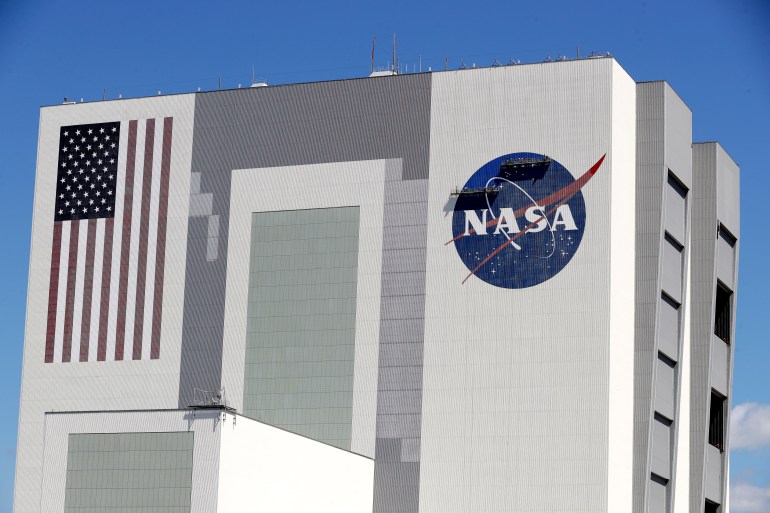NASA and the US Department of Energy awarded three $5m contracts to produce reactor-design concepts that could be used to ferry people and cargo to Mars someday.

Nuclear propulsion systems are more efficient than standard chemical-based rockets, meaning they hold promise for trekking faster for more ambitious missions that go deeper into space, according to United States space agency NASA [File: John Raoux/AP Photo]
By Ryan Beene
Bloomberg
13 Jul 2021
Nuclear energy has lost favor in much of the world, but the sky’s the limit when it comes to outer space.
The U.S. government is drawing on the expertise of Jeff Bezos’s Blue Origin space venture, General Electric Hitachi Nuclear Energy and other companies to develop nuclear-powered spacecraft that can travel faster and farther — to Mars and beyond.
13 Jul 2021
Nuclear energy has lost favor in much of the world, but the sky’s the limit when it comes to outer space.
The U.S. government is drawing on the expertise of Jeff Bezos’s Blue Origin space venture, General Electric Hitachi Nuclear Energy and other companies to develop nuclear-powered spacecraft that can travel faster and farther — to Mars and beyond.
NASA and the Energy Department awarded three $5 million contracts to produce reactor-design concepts that could be used to ferry people and cargo to Mars or propel scientific missions to the outer reaches of the solar system, the space agency said in a statement Tuesday.
Defense contractors Lockheed Martin Corp. and Aerojet Rocketdyne Holdings Inc., as well as drone maker General Atomics and BWX Technologies Inc., which makes nuclear components and fuel, are among the companies involved in the effort.
“These design contracts are an important step towards tangible reactor hardware that could one day propel new missions and exciting discoveries,” Jim Reuter, associate administrator for NASA’s Space Technology Mission Directorate, said in the statement.
Nuclear propulsion systems are more efficient than standard chemical-based rockets, meaning they hold promise for traveling faster for more ambitious missions, deeper into space, according to the National Aeronautics and Space Administration.
Meanwhile, nuclear energy now produces about 10% of the world’s electricity, down from a peak of 18% in the mid-1990s.
It could take several years to develop the technology for space travel, which faces significant hurdles. While nuclear power plants have been used for decades in submarines and aircraft carriers, placing one on an explosive rocket poses significant risks.
The nuclear space effort comes amid a resurgence in extra-planetary activity, with the U.S. government exploring Mars and planning the first manned mission to the moon in decades.
Meanwhile, companies backed by celebrity billionaires are racing to commercialize space tourism.
Virgin Galactic Holdings Inc. on Sunday completed a suborbital test flight with founder Richard Branson aboard.
Amazon.com Inc. founder Bezos plans to fly to space next week on a rocket made by Blue Origin.
General Electric Co. made many of the 1970s- and 1980s-era reactors that derive energy from boiling water and that remain at the heart of the U.S. nuclear portfolio.
More recently, the company has specialized in smaller reactors that don’t need the same infrastructure, through its joint venture with Hitachi Ltd. Development and interest in bigger nuclear power has slowed in recent years due to cost overruns and backlash following the Fukushima, Japan, meltdown in 2011.
SOURCE: BLOOMBERG
No comments:
Post a Comment